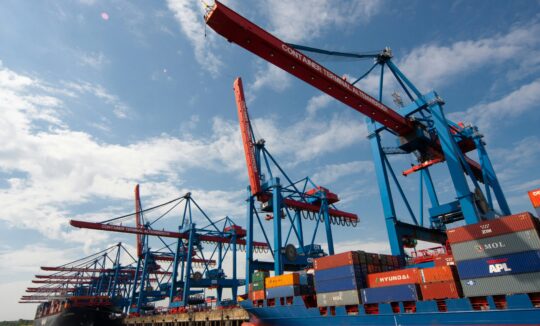- Switzerland’s vulnerability: Interview with Alessa HoolIn a new motion, the Foreign Affairs Committee of the National Council calls for critical raw materials to be systematically included in free trade agreements — a measure the Federal Council does not consider necessary in this form. In an interview with the Swiss Academy of Engineering Sciences (SATW), Alessa Hool, Managing Director of the… Read More
- Tagesspiegel Article: Europe’s Long Road to Less Resource DependenceThe EU wants to reduce its dependence on China for critical raw materials and is preparing a new initiative, ResourceEU, to complement existing legislation. In a recent “Tagesspiegel Background” article Alessandra Hool, CEO of the ESM Foundation, stresses that so far Europe preferred to outsource the extraction and processing of raw materials to other countries… Read More
- China’s Export Controls on Rare Earths Reignite DebateAt the beginning of October, China introduced new export controls on rare earths, once again highlighting the global dependence on Chinese raw materials. In Switzerland, too, the question of alternative sources of supply is sparking debate. According to SRF, only small amounts of critical raw materials are currently recovered from electronic waste, even though recycling… Read More
Our Vision
The ESM Foundation is the leading Swiss network for questions about the responsible industrial use of metals with limited availability that are essential for the transformation to a sustainable society.
Our Mission
The foundation initiates, supports and coordinates research and educational projects, organizes events and promotes professional and social discourse on critical metals. The ESM stands for a high standard of scientific quality as well as political and financial independence, made possible by foundation capital that has been managed sustainably since 1951. The foundation works closely with science and industry at home and abroad and is involved in publicly funded projects.
Our Story
ESM founded by Gaston F. Dubois
to support and conduct research on rare metals for industrial use with first president Dr. O.H.C. Messner.
Opening of the Zurich office
with Managing Director Eduard Fleissig
Reorientation towards research funding including the promotion of doctorates
Closure of the Zurich office
Reopening of the ESM office in Pully
with Managing Director Dr. Margarethe Hofmann and a new focus on recycling
Inauguration of Chairman Prof. Hans Böhni
Inauguration of Chairman Dr. Bruno Walser
Establishment of the Council of Less Common Elements
Opening of the Board of Trustees to non-Swiss nationals
Inauguration of Chairman Dr. Ernst Lutz
Relocation of the ESM office to Bern with Managing Director Alessandra Hool
Reorientation towards development
Management and participation in collaborative projects in Switzerland and abroad
Coordination of the training project “Sustainable Management of Critical Raw Materials”
supported by EIT Raw Materials
Coordination of the expert network “International Round Table on Raw Materials Criticality”
supported by EIT Raw Materials
Cooperation with Swiss federal offices
After the Second World War, Gaston F. Dubois (Swiss chemist and former Monsanto manager in the USA) was concerned with Switzerland’s supply of materials from abroad. On December 15, 1951, he established the “Entwicklungsfonds Seltene Metalle, ESM” in Zurich with himself, Prof. E. Baumann (ETH Zurich), and Dr. O. Zipfel (Federal Council Delegate for Job Creation), as first Board members, and Dr. O.H. Messner (industry consultant) as first President of the Board of Trustees. Based on its bylaws written more than 60 years ago, the foundation aims to support and conduct research and investigations in the field of rare metals with respect to their industrial use. Since then, the ESM foundation has supported more than 30 research projects in fields where less common elements played a crucial role.
When establishing the ESM Foundation, the founding fathers had the ambition to create new industries in the field of “rare metals” and through this new work places. By financing research and development it was envisaged to support the exploitation and valorization of such results, creating innovations and marketable products.
Today, we continues the work of our founders, bringing together novel ideas related to rare and critical elements elements and their strategic implication in science and engineering.



